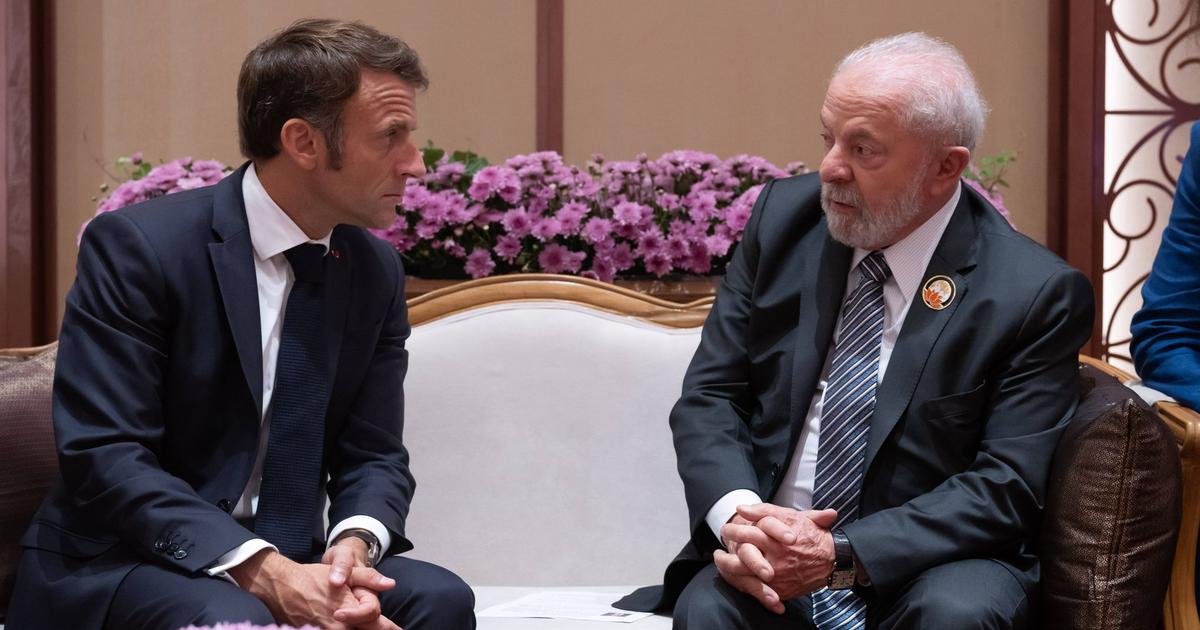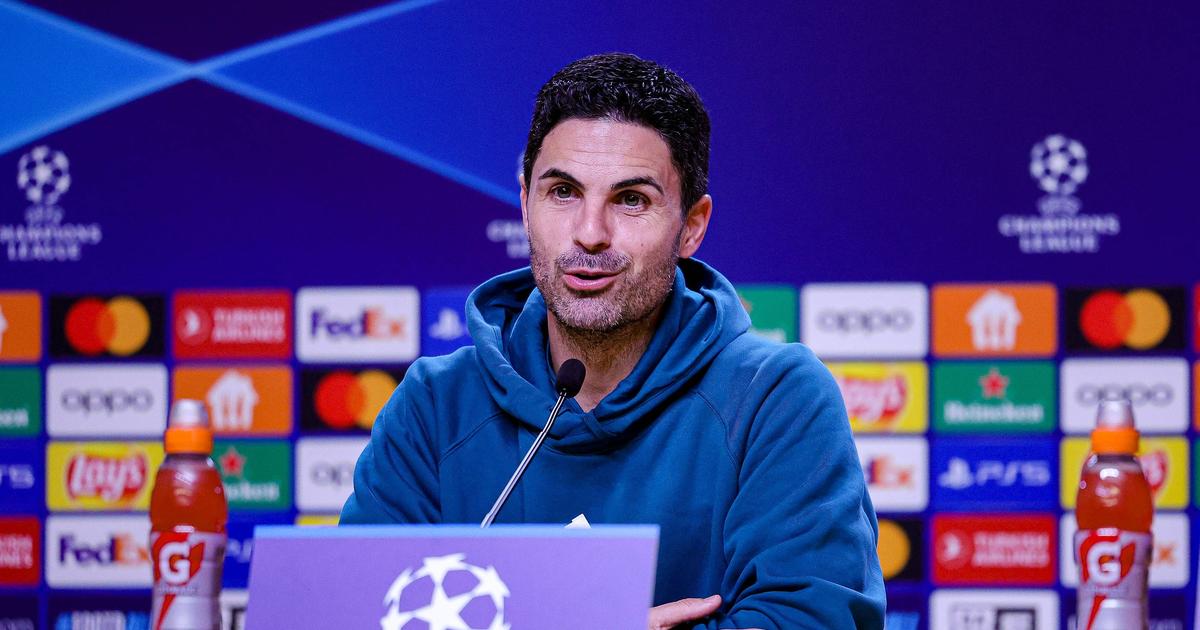There are only a few days left for the elections in Brazil and four months for the carnival, but in the mind of Leandro Vieira (Rio de Janeiro, 1983) the two issues have a central importance and much to do with each other.
At the forefront of the preparations for the parade at the Imperatriz Leopoldinense samba school Sambadrome, Vieira walks through the gigantic industrial warehouse where the floats are already beginning to be shaped, giving orders and supervising details among dozens of carpenters, blacksmiths and sculptors.
He works as a 'carnavalesque', in his own words, “the artistic director of that popular opera that people know as the samba school parade”.
Vieira belongs to a new generation of carnivalesque people who have rescued the most politicized side of the festival.
In recent years,
the parades he devised celebrated the religious diversity of Brazil when Rio had an evangelical mayor and an ally of President Jair Bolsonaro, vindicated the black and indigenous heroes separated from official history and the assassinated councilor Marielle Franco.
She confesses that she has difficulty understanding how Bolsonarism found fertile ground in such a plural country, and assures that, four years later, "the social setback is enormous."
Ask.
Many people still see the Sambadrome as mere entertainment, a big party, crazy with thousands of half-naked people having fun.
Why does that image prevail?
Response.
Whoever sells the carnival does it in the most mistaken way possible.
This idea of a party is precisely the idea that empties the main role of carnival as an artistic, cultural and political manifestation.
As a party, you are trivializing the importance of culture, art and politics.
And for a misguided project in this country, transforming culture, art and politics into something banal is interesting.
Leandro Vieira, in Rio de Janeiro, in September 2022.Leonardo Carrato
Q.
What is the social role of samba schools?
A.
In a country where education is not for everyone, samba schools are a tool to promote knowledge of the culture and history of the Brazil that we believe in, at least the Brazil that I believe in.
Samba schools can develop a conscious citizenship, enable citizenship education for a population that does not always have access to quality education.
P.
In your parades you have dealt a lot with the cultural aspect of Brazil's religious diversity, syncretism, etc, but in recent years the country has dealt with religion in a somewhat fundamentalist way.
How do you see the way Brazil relates to religion today?
R.
I understand Brazilian religiosity as one of the most fundamental cultural aspects for the formation of the Brazilian people.
It is impossible to disassociate Brazilian culture from its religious culture.
It is impossible, for example, not to link the samba schools to the religions of African origin, or the 'juninas' festivals (which celebrate Saint John, Saint Peter and Saint Anthony) to the dates of the Iberian religious culture.
The religious culture of Brazil is one side of the Brazilian culture, and for a long time that was understood in a very natural way.
But with the advance of conservatism, linked to neo-Pentecostal churches, a "bench of the Bible" was created (the informal way of referring to the most radical evangelical parliamentarians) that has grown a lot in the National Congress.
In 2016, this political-religious project won the mayor's office in Rio de Janeiro.
That political representativeness for social aspects is a danger.
When a President of the Republic says that he has to place someone “terribly evangelical” on the Supreme Court, he is giving signs that the political and religious aspects take precedence over the democratic aspects.
The real Brazil handles cultural and religious issues well, and the real Brazil is the one on the street, the one that makes that mix.
P.
But the "real Brazil" also chose an evangelical bishop of the Universal Church of the Kingdom of God, Marcelo Crivella, as mayor of Rio, in the city that is proud to organize the largest carnival in Brazil.
How is that explained?
A.
I don't know how to explain it, just as I don't know how to explain what makes Rio de Janeiro the cradle of Bolsonarism.
I can't explain it.
I do not can.
I've been trying to figure it out for years.
P.
What is behind the attacks of the conservative field against the carnival and other expressions of popular culture?
A prejudice towards the poor?
R.
Totally, there is a prejudice with the things of the poor.
Imagine for this country that is marked by this colonial thought, by machismo, by racism, accepting that the greatest expression of Brazilian culture is an artistic expression that comes from the outskirts, from the favelas, and that is basically black.
And that this culture of the black periphery is beautiful, internationally recognized and made by poor black people from the favela.
Q.
Who builds the carnival and attends the samba schools all year round, is mostly black and from the periphery, but the vast majority of its leaders are white and of a higher social status.
How do you see that contrast between who makes the carnival and who rules in the carnival?
Leandro Vieira, during an interview.
Leonardo Carrato
R.
It is a very big contradiction, that peripheral communities, mostly made up of people with very dark skin, are represented by white men who represent an elite.
This has to do with the Brazilian social contradictions.
The samba schools are a very clear cut of all the contradictions of Brazil.
P.
You were recently in an act of sambistas supporting Lula.
Why do you think she is the best option for Brazil now?
R.
Brazil lives a situation in which it is necessary to defend questions that are basically democratic.
It is necessary to stop a conservative, authoritarian thought.
To be a conservative in Brazil is to keep things as they are, and Brazil is a country historically marked by an authoritarian police force, by colonial, sexist, racist thinking… To be a conservative in Brazil is to maintain a sexist, racist, homophobic social structure… To elect Lula in the first round is somehow to prevent progress in a process that has left very bad social marks in Brazil in recent years.
It is a question of priorities.
Brazil today is experiencing an enormous social setback.
It is a basic social crisis, we are talking about hunger.
Not having anything to eat is a very serious thing.
For me it is very clear that we have to give enough to all that setback.
Subscribe here to the EL PAÍS América
newsletter
and receive all the key information on current affairs in the region.









